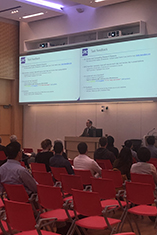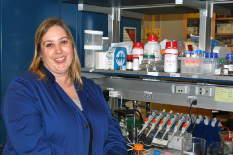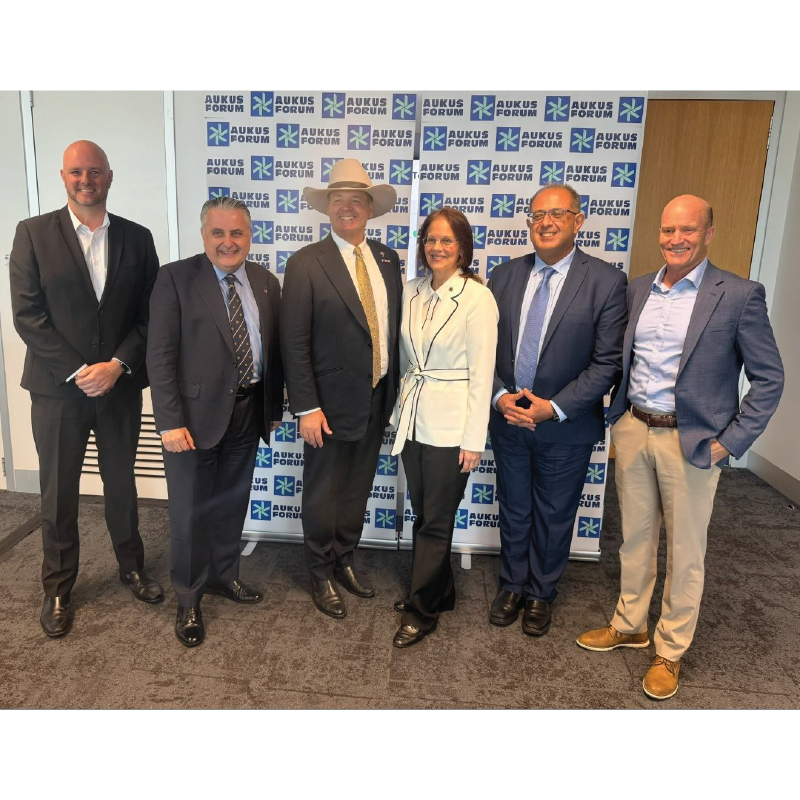News Story
Fischell Institute Hosts SemiSynBio

The SemiSynBio Annual Review took place in A. James Clark Hall's Forum on June 4-5, 2019.
The Robert E. Fischell Institute for Biomedical Devices hosted the National Science Foundation's (NSF) Semiconductor Synthetic Biology for Information Processing and Storage Technologies (SemiSynBio) Annual Review on June 4-5.
SemiSynBio was established as a partnership between the NSF and the Semiconductor Research Corporation (SRC) in 2018. The goal of the partnership is to create storage systems that integrate synthetic biology with semiconductor technology.
The Annual Review serves as an annual contract review and provides project guidance for participants in the SemiSynBio program. Meeting attendees included members of NSF and SRC companies, and researchers from across the country. More than a dozen speakers presented on topics ranging from developing a DNA-based, electrically readable memory for next-generation electronics, to neural networks implemented in communicating yeast cells.
Fischell Institute Director William E. Bentley closed the two-day event with a presentation on, “RE-BIONICS: Redox-enabled Bio Electronics based on Molecular Communication."
Bentley detailed his research team’s efforts to create a first-of-its-kind microelectronic device that can connect with biological systems to revolutionize the future of electronic device design and computing systems. Such a device could facilitate the free exchange of information between the electronic and biological worlds.
By engineering cells with synthetic biology components, Bentley and his fellow researchers have experimentally demonstrated a proof-of-concept device enabling robust and reliable information exchange between electrical and biological (molecular) domains. Even more, the research group is now working to develop a novel biological memory device that can be written to and read from via either biological and/or electronic means.
In addition to Bentley, Fischell Institute faculty members Reza Ghodssi (Herbert Rabin Distinguished Chair in Engineering, Department of Electrical & Computer Engineering, and the Institute for Systems Research) and Gregory Payne (Institute for Bioscience and Biotechnology Research) have contributed to the project along with Massimiliano Pierobon of the University of Nebraska, and Jessica Terrell (Bioengineering Ph.D. '15) of the U.S. Army Research Laboratory.
The NSF recently awarded this team $1.5 million in a research grant through the SemiSynBio program.
Published June 6, 2019













